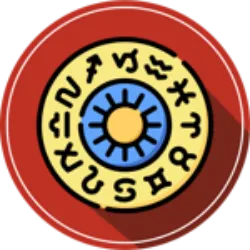Astrology, despite having ancient connections with astronomy
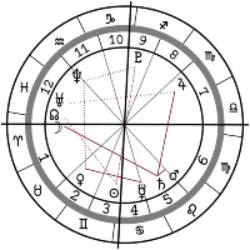
Astrology, despite having ancient connections with astronomy, is now considered a pseudoscience, as it lacks scientific foundation. The lack of statistical evidence for the causal relationship between horoscopes and events in human life leads to the view of the birth chart as a tool based on mystical beliefs, linking more to the individual perspective than to actual events. The practice of astrology also involves misinterpretations of scientific terms, which can promote ignorance and turn the public away from science. Furthermore, concepts such as the zodiac and vibration have no scientific support, and the physical or gravitational influence of distant celestial bodies is practically negligible. Thus, astrological claims cannot be explained scientifically.
Astrology, with records dating back to the third millennium BC

Astrology, with records dating back to the third millennium BC, played an important role in several cultures, influencing ancient astronomy and other disciplines. Until the Modern Age, astrology and astronomy were indistinguishable, but they gradually separated. Astrologers claim that celestial bodies influence events on Earth. However, rigorous scientific studies have not proven its effectiveness, leading to its classification as pseudoscience. Tests have shown insignificant results, while generic personality descriptions (Forer Effect) may explain its popularity.
Test yourself with one of these challenges 👇
Discover some interesting facts about Astrology
Astrology
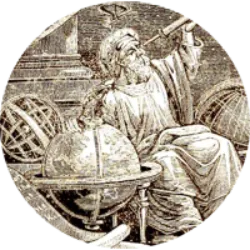
Astrology, based on celestial observation and the movements of astronomical bodies, uses ephemerides to determine celestial positions. The Horoscope is the main tool, representing the position of the bodies in relation to the zodiac signs, astrological houses and aspects. Several astrological traditions, such as Western, Chinese, Vedic and Kabbalistic, have specific approaches, involving natal, horary, elective, world and agricultural astrology. Astrology influenced the language and, while the Western uses the tropical zodiac, the Hindu uses the sidereal, more aligned with the astronomical position of the stars.
Modern astrology is based on the interpretation of the Natal Chart
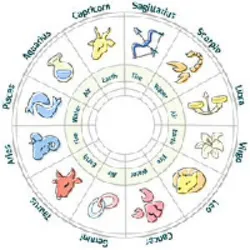
Modern astrology is based on the interpretation of the Natal Chart, associating astrological meanings with the context of the analyzed situation. Predictive analysis uses techniques such as Transits, Progressions, Arc Directions and Solar Return. Despite almost disappearing in the 20th century, Horary Astrology has recently re-emerged with renewed interest in traditional techniques. Classic zodiac signs are associated with specific parts of the body. In addition to Western astrology, other forms are practiced globally, with traditions in China since 2000 BC, in India since around 1500 BC, and in the Aztecs with 20 signs. 19th century English astrology was influenced by theosophy, and today, there is a resurgence of "classical astrology", including translations of ancient works, as well as psychological and transpersonal approaches.
Astrology
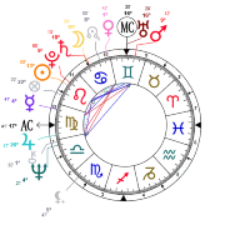
Astrology, a pseudoscience that explores the influence of the stars on human life, uses the astral chart to show the position of the stars and zodiac signs at the time of a person's birth. According to Kabbalistic astrology, this celestial disposition influences personality. The Astrological Charts are unique, repeating themselves every 26,000 years. Max Haindel, a 20th century astrologer, proposes the concept of "stellar baptism", where astral influences at the moment of birth affect the entire life. This idea is explored in daily horoscopes, highlighting resonances between a person's astral vibration and that of a specific moment. It is recommended to consult an astrologer for the precise interpretation of these elements.
Astrology, although some defend it as a science

Astrology, although some defend it as a science, is not recognized as such by the scientific community. It is based on the idea that events on Earth are linked to planetary movements at the time of birth, influencing characteristics and destinies. However, the lack of consensus on how this relationship occurs and the absence of scientific foundations are critical points. Statistical studies, such as those by Michel Gauquelin, are cited by astrologers but remain questionable. The validity of astrology is challenged in cases of identical twins, and the lack of falsifiability in astrological claims is a concern. Physicist Stephen Hawking points to incompatibility with established scientific theories as the central reason for the rejection of astrology by most scientists.
Each person has a complete astrological chart, not just a zodiac sign

Each person has a complete astrological chart, not just a zodiac sign. While many respond with their Sun sign when asked about their sign, this only represents the position of the Sun at the time of birth. The chart includes other elements, such as the "ascendant" or "rising sign" that was appearing on the horizon at that moment, influencing how you are perceived by others. The moon also plays a significant role, revealing information about your emotional life, relationship with your mother, and how you deal with feelings. Each planet and even asteroids contribute to creating a more complete and accurate portrait of the astrological influence in your life.
HOME
